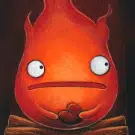In 1984, the comedy-horror film "Ghostbusters" made a splash on the global stage. Produced on a budget of US$30 million, it secured a worldwide box office return of US$290 million, and quickly transformed into a multi-billion-dollar brand, generating over US$1 billion in merchandise sales for Sony Pictures.

(GIF of Dr. Peter Venkman persuading his potential business partners)
In the film, Dr. Peter Venkman, one of the key characters, convinces his friends to establish a ghost-catching business. Little does he know, his "prediction" will become a reality.
The "Ghostbusters" franchise has evolved into a widely recognized cultural phenomenon. It extends beyond the original film series to include comics, animations, as well as video and board games. Its merchandise ranges from mugs and lunch boxes to T-shirts and various toy models. Such is its cultural significance that it was included in the National Film Registry by the Library of Congress in 2015, alongside "Top Gun". The enduring popularity of "Ghostbusters" is evident in the widespread use of its iconography, reflecting a strong cultural affiliation.

(In the second season of the hit series, "Stranger Things", the young characters pay homage to the epic "Ghostbusters" by dressing up as the Ghostbusters for Halloween)
Following the success of "Stranger Things", Sony Pictures extended an invitation to one of the show's stars, Finn Wolfhard, who played Mike Wheeler, to portray a new-generation member of the Ghostbusters, Trevor Spengler, in the 2021 film, "Ghostbusters: Afterlife".
What elements contributed to the success of "Ghostbusters"? A look at the historical backdrop provides some insight: Amidst the economic challenges in the 70s, marked by high inflation and unemployment, the American society was in need of a pressure valve.
This environment gave rise to low-budget, high-return horror films, and attracted a wealth of talent to this genre. Iconic films that emerged between the 70s and 80s , such as "The Texas Chainsaw Massacre", "Jaws", "Dawn of the Dead", "Halloween", and "Alien" left an indelible mark on popular culture, causing subsequent horror films striving for originality to appear somewhat lackluster in comparison.

(Icon of "Ghostbusters")
Could the success of "Ghostbusters" be attributed to its unique blend of horror, comedy, and science fiction? That seems a bit too simplistic and weakly convincing . Interestingly, Ivan Reitman, the director of "Ghostbusters", had already ventured into the comedy-horror genre with his 1973 film "Cannibal Girls", which unfortunately received a tepid response.
Over the following decade, Reitman honed his craft and amassed extensive social networks within the industry through his involvement in various horror and comedy projects as well as brief attempts at science fiction. His efforts eventually bore fruit when he teamed up with three comedic titans - Dan Aykroyd, Harold Ramis, and Bill Murray.
One must also consider the context of the 80s - an era when the Internet and laptops were in their infancy, and the ease of information sharing greatly enabled the satisfaction of curiosity. This led individuals to investigate and discuss the unknown, giving rise to a rich exchange of cross-industry and cross-culture ideas, and inevitably, disagreements. It's worth noting that the social climate at that time was less than welcoming towards geeks, and individuals with a deep-rooted passion for inquiry were often viewed as overly serious nerds.
Aykroyd and Ramis clearly had a deep grasp of the societal context then, recognizing that humor is often the most effective link between rationality and sentimentality. They pondered the potential interaction between the mystery of extreme sentimentality and the science of extreme rationality.
Collaborating with Murray, they crafted a lively comedy trio whose members have distinctly unique personalities: Peter Venkman, a psychologist who instantly falls head-over-heels for beautiful women, yet lacks the knack for winning them over; Ray Stantz, a mysterious doctor who goes as far as selling his house for investment funds, and tends to be somewhat scatterbrained at crucial moments; and Egon Spengler, an austere and focused brainiac with an unknown number of doctorates, who is mainly tasked with equipment development, and always eager to dissect things for analysis.

(GIF of "Ghostbusters" featuring Dr Peter Venkman and the Library Administrator, played by John Rothman)
These "exorcists with doctorates" using science as a weapon to exorcise demons are impressive, and they refresh people's understanding of geeks—they are not only erudite and brimming with scientific rationality, but also humorous and approachable. More importantly, they are not handsome and suave Hollywood idols, but average-looking ordinary people who will be at a loss when they come into contact with beauties. They face similar troubles and challenges in life as most of us do. We will unconsciously project ourselves into and imitate them, because they ultimately save the world with their courage and wit.
Today, 40 years have passed since the release of "Ghostbusters". Has the world become better? That's a tough question. We still see war, class stratification, and ideological conflicts. When faced with hardships in life, instead of seeking superheroes, will we find the down-to-earth Ghostbusters more relatable?
Who you gonna call?

































View replies 0